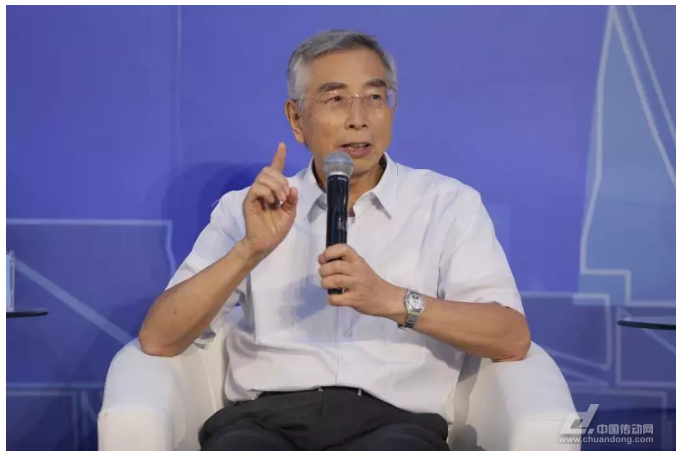How many years is China's chip and the United States? The most authoritative statement came! ] Ni Guangnan, an academician of the Chinese Academy of Sciences who devoted his life to the development of domestic chips and software, denied to the company that it had failed to acknowledge the failure of the company. Academician of the Chinese Academy of Engineering Ni Guangnan Ni Guangnan, 79, is an academician of the Chinese Academy of Sciences. He created the association function of Chinese character input in the 1980s and was the first chief engineer of Lenovo Group. The “ZTE Incident†triggered widespread concern from the “China Coreâ€. Liang Ning, who was once an assistant to Ni Guangnan, recently issued a ten thousand-long article entitled “The Past of Domestic Chips and Operating Systems.†This article describes Ni Guangnan’s insistence on the development of “Ark†domestically. The chip suffered a "full rout" attempt. Liang Ning wrote in the article that as an assistant to Ni Guangnan, she participated in the work of the Ark CPU, Evermore Office, the NC thin client, and the Linux operating system. Li Delei (founder of Ark Technology) found Ni Guangnan and had always been interested in the technical team of Li Delei who had no knowledge of China's proprietary operating systems and chips. In April 2001, China's first self-designed Embedded chip "Ark 1" was born. After the chip was made, it did not have the ability to independently design the core circuit board, there was no supporting software available, and the domestic software suffered from incompatible formats and low user experience. Liang Ning described it as “a mountain of defeatâ€. A media report in 2006 described the demise of the ark: Fang Zhou took over the “863†(China High-Tech Research and Development Program) project of the Ministry of Science and Technology, shelved it, and the Ark Building raised the alarm caused by the Ministry of Science and Technology. He called Li Delei’s mistake. Ni Guangnan “received the crime†for the Ministry of Science and Technology. Ni Guangnan said that the “Ark incident†should be a year in which one cannot think that the failure of a company is equal to the failure of a team or a technology. It should be viewed from a different perspective. After the ark was gone, Li Delei ran away, and Ni Guangnan said, “Of course this is a failure, but for all people involved in the ark, it is a ladder of development process. Teams and technologies have grown through this process. Lee is firmly determined to In batch, but can't hurt these teams. Without the ark CPU, Junming CPU may be gone." According to statistics, Liu Qiang, Ph.D. graduated from the computer science department of the Chinese Academy of Sciences in 1997, joined Li Delei's company and became the vice president in charge of research and development. In 2005, he left the Ark to establish Jun Zheng. Ark company closed, Ark's technical staff will continue domestic CPU technology. The company's independent research and development route, Junzheng, was listed on the 2010 IPO. The chips produced were used in 360 cameras, millet watches and other products. Ni Guangnan said that Ark did not succeed but Liu Qiang succeeded. Ni Guangnan said that domestic chips have gone from being "unavailable" to "available". A new product comes out. Some places can be used in places where it is not available. Unavailable ones are unsuccessful, and some are successful. "What we can do is try to win as much as possible under certain conditions. Software 1.0 is often not very good. So 1.0 will not be done? 1.0 is not necessarily a failure, 1.0 is just a process. There is no 1.0 and there is 2.0? Say a version can be successful. Chips are also just coming out there will be some bugs, the success of the first version is not easy, but try to do a solid number." Ni Guangnan said. In addition, for the much-watched "ZTE Incident," Ni Guangnan believes that it is inaccurate to say that China can't make chips. The situation in different fields is different. “In the supercomputer field, our chips are not worse than others; desktop chips are still worse than those in developed countries. The gap is not that big. There are three or five years. The chips on mobile phones are also roughly the same as those in foreign countries, but some chips are really different from foreign countries. We did not have many chips for ZTE in the telecommunications field, not because we didn't pay attention in the past." Ni Guangnan pointed out that the chip industry is divided into two parts: design and manufacturing. China's largest short board is manufacturing, and the level of design is still relatively good. “Obviously, manufacturing is obviously lagging behind. Manufacturing is closer to traditional industries and requires a lot of equipment, materials, and processes. Investment in this area is very large. We have not invested enough. Compared with the United States, the gap is still relatively long. It is necessary to have 10 to 8 years. †Capacitor for Electric Furnace Capacitor For Electric Furnace, commonly referred to as capacitors, are capacitors, expressed in the letter C.Definition 1: a capacitor, as the name implies, is a "charging vessel", a device that holds charge.Capacitor.Capacitors are one of the most widely used electronic components in electronic equipment. They are widely used in the fields of interleaving, coupling, bypass, filtering, tuning circuit, energy conversion and control.Definition 2: a capacitor consisting of any two conductors (including wires) that are insulated from each other and are very close together.
Electronic Components Capacitors,High Voltage Capacitors,Low Frequency Capacitor,Water Pump Capacitor,Capacitor for Electric Furnace YANGZHOU POSITIONING TECH CO., LTD. , https://www.cnpositioning.com